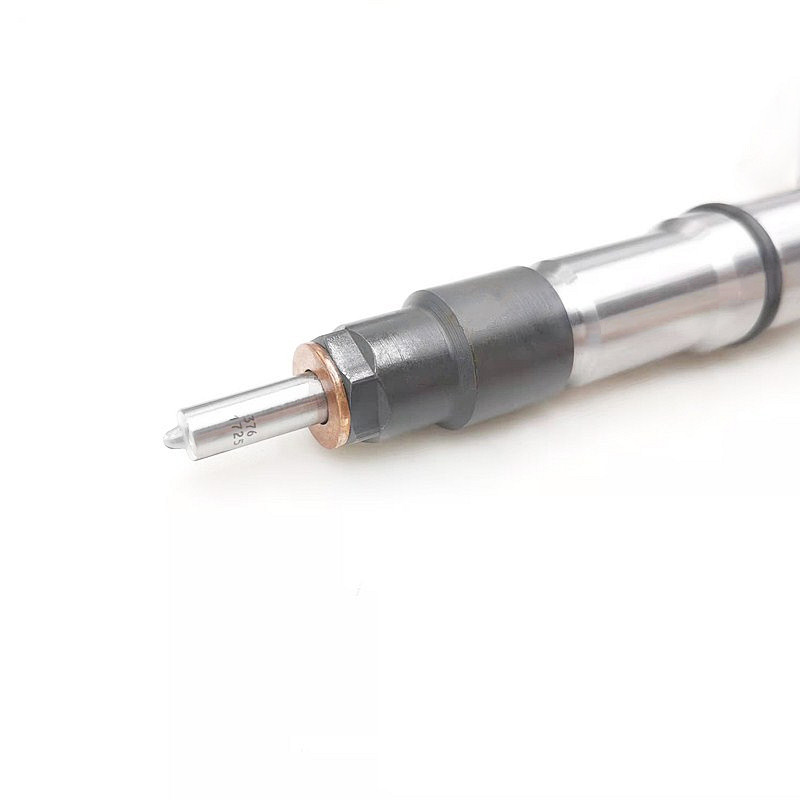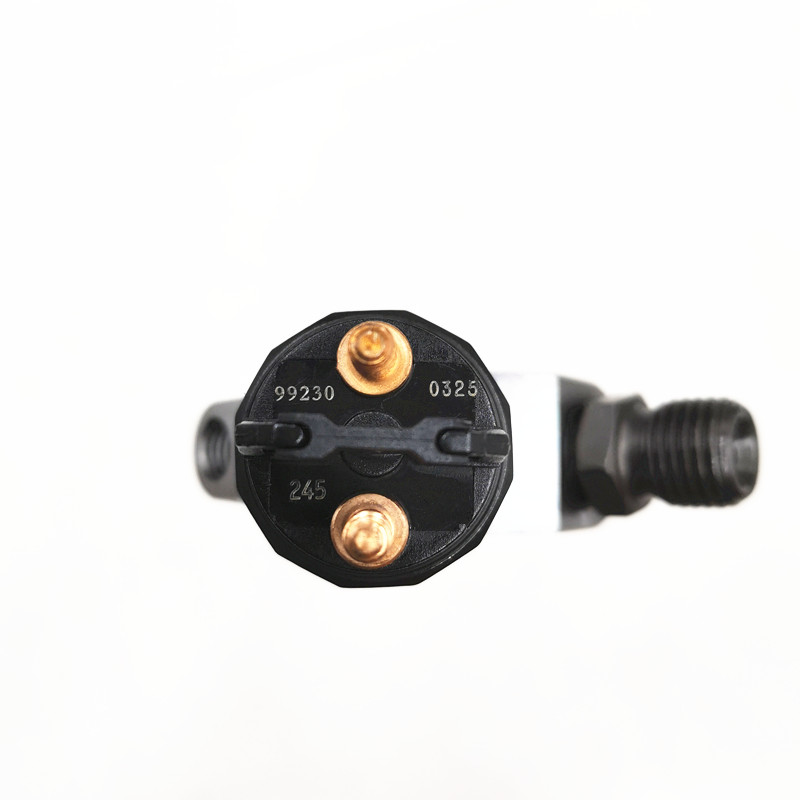Family focused reviews and advice for everything family car related.
Off-road for beginners and the experienced, plus camper trailers, caravans and motorhomes Mechanical Injectors

Utes, commercial vehicles and tow tests
We make it easy to compare design, practicality, value and more
Buying used? Here's what to look out for and buy smart
Your thoughts could drive you to more than just your next destination 🚗💬
Our experts pick the top models
What's happening in the automotive world
Get to know the personalities behind the team every week
The stars of the latest big events
The most interesting hints of what's to come
What's been recalled and why. Are you affected?
The latest and future car tech from around the world
We're here to help you with any car issues
Looking for tips on how to carry or travel with your family?
How To, off-road tips and adventure travel destinations
Not just utes. Detailed advice for you - the tradie - on what car is right for you and your job
Looking for an answer? Our automotive experts are here to help
If you're wondering, we've probably got the answer
Unsure of your car's maximum towing capacity? We've listed all relevant models here.
Wondering how much air to put in your tyres? Our database has the answer
Everything you need to know to keep you and your family as safe as possible
Helpful advice before you finance your next car
Tips for getting the right insurance and how to make a claim
Everything you need to know when sizing up your new car
Turbocharging diesel engines has been going on since the early part of last century, but these days, there’s hardly a single road-going vehicle that doesn’t feature a turbocharger to boost power and efficiency.
But it wasn’t always that way, and Toyota’s 1HZ non-turbo diesel engine in its Landcruiser range, must surely rate as the prince of non-turbo diesels.
A member of the Toyota HZ engine group, the 1 in 1HZ indicates that it’s a first-generation family member.
Not only is the Toyota 1HZ diesel capable of doing the job of a smaller capacity turbo-diesel, it will continue to do so for at least half a million kilometres with some operators reporting a million kilometres covered before major work has been required.
Throw in superb day-to-day reliability and dependability and decent efficiency and fuel economy, and you can see why the 1HZ, though hardly a sprinter, has endeared itself to long-distance and remote-area travellers.
Any 1HZ engine review will always make the point that this is a long-life engine that won’t quit in a hurry. Perhaps the biggest downside is 1HZ fuel economy which will range from about 11 to 13 litres per 100km.
That's on a standard vehicle at highway speeds and will be anything up to double that when towing. That trails the modern dual-cab ute stuff, but it’s not bad by full-sized 4x4 standards
Bald 1HZ engine specs don’t necessarily reveal its secrets. Rather, it is the combination of quality materials, careful assembly and solid basic design that has made the 1HZ such a revered unit.
That starts with a cast-iron block and cylinder head (very common in diesel engines even today). With a capacity of 4.2 litres (4164cc to be exact) the 1HZ uses a bore and stroke of 94mm and 100mm.
The crank runs in seven main bearings. The engine is an inline six-cylinder with a single overhead camshaft (driven by a toothed rubber belt) and two valves per cylinder.
The 4.2-litre inline six-cylinder engine produces 96kW/285Nm. (image credit: Wikimedia Commons)
The 1HZ uses indirect injection technology and runs a compression ratio of 22.4:1. Power is a claimed 96kW at 3800rpm and 285Nm at 2200rpm.
A 1HZ injector pump diagram will also reveal that the engine uses old-school injection rather than the newer common-rail diesel technology.
The cast-iron construction of the engine means it’s strong, but the 1HZ engine weight is about 300kg. 1HZ engine oil capacity is 9.6 litres for a dry fill.
In Australia, the 1HZ was a popular choice in the 80 Series which launched in 1990 and has gone on to be regarded as the best LandCruiser Toyota ever made (the all-new 300 Series being yet to prove itself for that title).
In 80 Series form, the 1HZ sold alongside versions of the same vehicle with a petrol six-cylinder and the turbo-diesel 1HDT, and that continued with the new 100 Series in which the 1HZ was fitted to the base-model Standard variant (technically a 105 Series).
Classic-looking and with stacks of off-roading ability, it's no wonder the 80 remains very popular. (image credit: Tom White)
It lasted in that vehicle right up until 2007 when the 200 Series arrived.
In Toyota’s workhorse range, the 1HZ arrived in the 75 Series and Troop Carrier in 1990 and sold until 2007 when it was finally replaced by turbo-diesel options. The 1HZ diesel also found its way into some Toyota Coaster buses.
Crucially, to get a 1HZ in your new Toyota, you had to buy the full-sized LandCruiser as the Prado never gained that engine.
Neither will you find a 1HZ LandCruiser with an automatic gearbox; if it was a 1HZ engine manual gear-shifting was your lot.
1HZ engine problems are scant, really. Aside from a few cases of cracked cylinder heads around the area of the pre-combustion chamber, the news is good.
1HZ head gaskets aren’t a problem if the engine hasn’t been overheated, and the 1HZ timing belt doesn’t seem to give trouble provided it’s changed every 100,000km.
The 75 Series got a part-time system with a transfer-case to give two distinct sets of gear ratios.
Conventional wisdom suggests the 1HZ fuel pump will need attention around the 400,000km mark, and many owners elect to recondition the cylinder head at the same time.
Other servicing is simple, although the 1HZ thermostat location down low on the side of the block makes it a bit hard to get to without removing the alternator.
Of course, nothing lasts forever, and when the 1HZ is eventually worn out, many owners simply elect to buy a second-hand 1HZ with fewer kilometres on board and swap it over.
The 1HZ engine for sale adverts are the go-to in this case, but some owners elect to rebuild the engine they already have.
A 1HZ rebuild kit including rings, bearings and gaskets can be bought for around $1500 but if you want to build the engine for turbocharging, be prepared to spend about twice that for the kit which will include lower-compression pistons.
The 105 Series was very much an 80 Series carry-over.
There’s plenty of labour involved, too, if you don’t do the work yourself, and factor in the measuring and machining work on the existing crankshaft and cylinder walls.
A good, running second-hand engine can be found for a few thousand dollars, while fully reconditioned units (which the option of turbocharging) can be sourced for anything from about $5000 to $10,000 and more if you want something really trick.
Reconditioned units are widely available from companies that specialise in this type of work, but you’ll still often need to provide a core engine as an exchange.
Perhaps the most common comparison people make is the old 1HZ vs 1HDT discussion, since the 1HDT sold alongside the 1HZ in the 80 and 100 Series vehicles, but fetches a lot more money these days as a second-hand proposition.
Why? Simply because the 1HDT is a turbocharged diesel and, as a result, has a lot more power and torque on tap (151kW/430Nm plays 96kW/285Nm).
Ask any Toyota LandCruiser nut, and they'll know what the 1HD FTE engine is. They might even have a tattoo of that engine code!
That gives the turbo engine a huge performance advantage on the road, but off-road, where the hard-core users rule, the 1HZ’s simplicity and ruggedness (and complete lack of electronics) remains the engine of choice for some.
Technically, there are other differences including the fact that the 1HZ injectors fire into a pre-combustion chamber (making the 1HZ an indirect-injection engine) while the 1HDT is a direct-injection design where the combustion is initiated inside the cylinder.
For that reason (among others) the cylinder heads of the two engines are not interchangeable and the different compression ratio of the turbo engine means the bottom ends are not compatible either.
Despite Toyota never offering a 1HZ turbo, the aftermarket has offered a 1HZ turbo kit to do just that. It’s fair to say that some are better engineered than others, but either way, owners of turbo 1HZs usually fit a pyrometer (to monitor exhaust gas temperatures and give an indication of how hard the engine is working) and keep a close eye on that gauge’s needle.
Popular aftermarket turbocharger solutions over the years include the Safari Turbo 1HZ, the AXT Turbo 1HZ, and the Denco Turbo 1HZ kits.
The 1HDT sold alongside the 1HZ in the 80 and 100 Series vehicles. (image credit: Tom White)
The fundamentals of each kit were the same; a 1HZ turbo manifold, the turbocharger unit itself and the necessary plumbing to connect it all.
As well as the basic turbo kits, many tuners recommend a boost compensator and, to maximise performance, an intercooler.
In each case, though, the aim has been the same; to improve on-road performance and acceleration especially when towing. A basic turbo kit runs out to about $3000 to $5000 plus fitting.
Owners who value the simplicity of the 1HZ, meanwhile, tend to stay away from turbocharging and instead use traditional methods of maximising what the engine has to offer.
For those owners, the best turbo for 1HZ was no turbo at all. If you don’t need the extra acceleration, it’s a sound argument, too.
In many cases, owners resorted to regular turning and the fitment of a quality exhaust including 1HZ extractors and a free-flowing (typically 3.0-inch) exhaust system to get what they needed.
Like any grudge purchase, many of us don’t really pay too much...
A car’s suspension might seem like a lot of trouble to go to, but...

Injector Copper Washer Q: How much does it cost to charge an electric car? A: In a nutshell, charging...